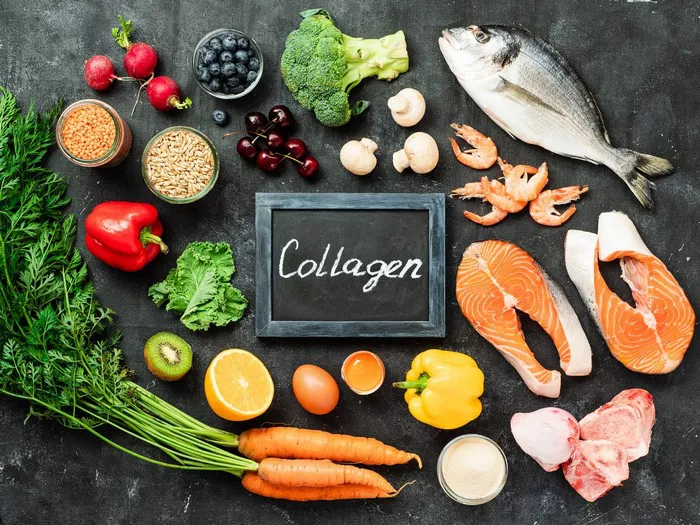In recent years, collagen has gained significant attention in the beauty and wellness industry for its potential benefits to skin, nails, and hair. As hair thinning and hair loss continue to be common concerns for many individuals, the role of collagen in promoting hair health has become a hot topic. This article delves into the science behind collagen and its effects on hair thinning, exploring whether it truly is a beneficial supplement for improving hair density and overall hair health.
Understanding Collagen
Collagen is the most abundant protein in the human body, making up about 30% of the body’s total protein content. It is a key component of connective tissues, including the skin, bones, tendons, and ligaments. Collagen provides structure, strength, and elasticity, which are essential for the body’s overall function and appearance.
There are several types of collagen, with Type I, II, and III being the most prevalent in the human body. Type I collagen is the most abundant and is primarily found in the skin, tendons, and bones. Type II collagen is predominantly located in cartilage, and Type III collagen is found in skin, blood vessels, and internal organs.
The Connection Between Collagen and Hair Health
Hair is primarily made up of a protein called keratin, which is produced in hair follicles in the outer layer of skin. Collagen plays a supportive role in hair health in several ways:
1. Providing Amino Acids: Collagen contains amino acids such as proline, glycine, and hydroxyproline, which are the building blocks for producing keratin. By supplying these essential amino acids, collagen can support the body’s ability to generate new hair cells.
2. Improving Skin Health: The scalp is part of the skin, and maintaining healthy skin can directly impact hair health. Collagen helps improve skin elasticity, hydration, and strength, creating a healthier environment for hair follicles to thrive.
3. Reducing Hair Follicle Damage: Collagen has antioxidant properties that help combat free radicals, which can damage hair follicles. By reducing oxidative stress, collagen may help prevent hair thinning and loss.
4. Increasing Blood Circulation: Some studies suggest that collagen may improve blood circulation to the scalp, ensuring that hair follicles receive adequate nutrients and oxygen needed for hair growth.
Scientific Evidence on Collagen and Hair Thinning
While the theoretical benefits of collagen for hair health are promising, it is essential to look at scientific studies to understand its effectiveness. Research on collagen supplementation and its direct impact on hair thinning is still in its early stages, but several studies provide insights into its potential benefits:
1. Collagen Supplementation and Hair Density: A study published in the Journal of Cosmetic Dermatology in 2019 investigated the effects of oral collagen supplements on hair density. The study involved women with thinning hair who took a collagen supplement for six months. The results showed a significant increase in hair density and a decrease in hair shedding, suggesting that collagen supplementation could benefit individuals with thinning hair.
2. Collagen and Skin Health: Numerous studies have shown that collagen supplements can improve skin hydration, elasticity, and overall skin health. Since the scalp is part of the skin, these benefits can extend to the scalp, creating a healthier environment for hair growth.
3. Collagen and Antioxidant Effects: Research has demonstrated that collagen peptides have antioxidant properties that can reduce oxidative stress. By protecting hair follicles from damage caused by free radicals, collagen may help prevent hair thinning and loss.
See Also: Is it Normal to Lose Hair While Sleeping?
How to Incorporate Collagen into Your Routine
If you are considering collagen supplementation to address hair thinning, there are several ways to incorporate it into your routine:
1. Collagen Supplements: Collagen supplements are available in various forms, including powders, capsules, and liquids. When choosing a collagen supplement, look for high-quality products that contain hydrolyzed collagen peptides, as they are easier for the body to absorb.
2. Collagen-Rich Foods: You can also increase your collagen intake through your diet. Foods rich in collagen include bone broth, chicken skin, fish skin, and gelatin. Additionally, consuming foods high in vitamin C, such as citrus fruits, berries, and leafy greens, can help support collagen production in the body.
3. Topical Collagen Products: Some hair care products, such as shampoos and conditioners, contain collagen. While the effectiveness of topical collagen for hair growth is still under debate, these products can help improve the overall health and appearance of your hair.
Potential Side Effects and Considerations
Collagen supplementation is generally considered safe for most people, but there are a few potential side effects and considerations to keep in mind:
1. Allergic Reactions: Some individuals may be allergic to collagen supplements, especially those derived from marine sources. If you have known allergies, check the source of the collagen before use.
2. Digestive Issues: In some cases, collagen supplements may cause digestive issues such as bloating, gas, or diarrhea. If you experience these symptoms, consider reducing the dosage or trying a different form of collagen.
3. Quality and Source: The quality and source of collagen supplements can vary. Choose products from reputable brands that undergo third-party testing to ensure purity and potency.
Conclusion
Is collagen good for hair thinning? The existing evidence suggests that collagen supplementation may offer several benefits for hair health, including providing essential amino acids for keratin production, improving scalp health, reducing hair follicle damage, and potentially increasing hair density. While more research is needed to fully understand the extent of collagen’s impact on hair thinning, incorporating collagen into your routine, either through supplements or a collagen-rich diet, could be a beneficial addition to your hair care regimen.
As with any supplement, it is essential to consult with a healthcare professional before starting collagen supplementation, especially if you have underlying health conditions or are taking other medications. By taking a comprehensive approach to hair health that includes a balanced diet, proper hair care, and potentially collagen supplementation, you can work towards achieving healthier, fuller hair.


